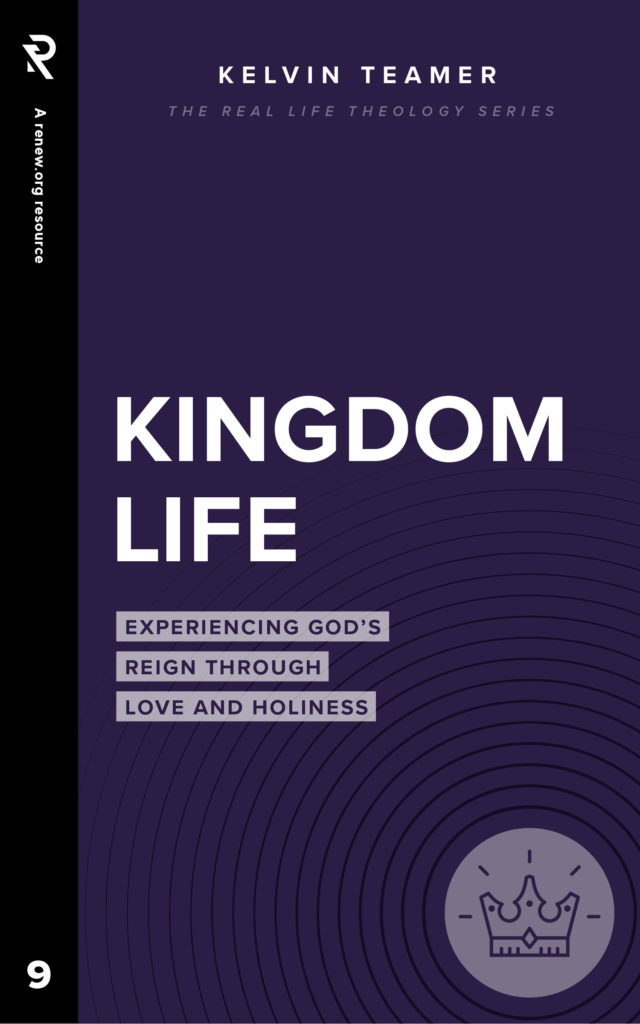
Lord’s Prayer: As We Forgive Our Debtors
We live in between the old and the new. The Kingdom is “now,” but it is also “not yet.” So if forgiveness is the bridge between the two, and we live in between the two, that means we need to live in forgiveness. As someone once put it, forgiveness is the very atmosphere of the Kingdom of God. This has some implications for how we live as citizens of the Kingdom.
Forgiveness Must Be Reciprocal
First, forgiveness must be reciprocal. As Matthew 6:14-15 says, forgive and you will be forgiven. Don’t, and you won’t. But wait? Do we forgive because God forgave us, or does God forgive us because we forgive others? Which comes first? Sometimes, like in the parable of the unforgiving servant (Matt. 18:23-34), God forgives first (cf. Eph. 4:32; Col. 3:13). Other times, it looks like we do (cf. Mark 11:25). Many versions translate Matthew 6:12 this second way: “Forgive us our debts, as we also have forgiven our debtors” (NIV). It’s like we forgive first, then God responds to that by forgiving us. So which is it?
The answer is neither.
The translation, “as we have forgiven” makes WAY too much of the Greek aorist tense. All the verbs in the Lord’s Prayer are in the aorist tense, so I don’t know why this one would be translated any differently. The aorist tense can indicate a past action, but it fundamentally has a more indefinite, almost timeless sense. Forgiving is just what God does, and forgiving is just what we do.
Forgiveness is the nature of the Kingdom. As we said before, it has to be. Forgiveness is the bridge between the broken world the unbroken world. That’s why unforgiveness is such a problem. Unforgiveness is unforgivable because it rejects the bridge itself.
“Unforgiveness is unforgivable because it rejects the bridge itself.”
Perversely, it chooses our pain over our healing. Our pain is part of the old world. If we want to live in the new, we have to choose not to get stuck in it. Entering the Kingdom means letting our pain go. God is not co-dependent. If we don’t choose healing, he’s not going to try and force us.
But, like the rest of the Christian life, this isn’t about perfection. It’s about choosing to walk in the right direction. Jesus understands more than anyone how deep hurts can go. Note that the great summary of the Lord’s Supper begins with the oddly intimate and painful note: “On the night he was betrayed” (1 Cor. 11:23).
Trust that God is patient as he leads us through the process of forgiveness. Healing takes time. If we pray the Lord’s Prayer daily (which the prayer for our bread “this day” implies), then we pray to “forgive our debtors” every day. This is a prayer we pray over and over.
“Trust that God is patient as he leads us through the process of forgiveness.”
Forgiveness is a process. Just walk with Jesus in it. You don’t need to feel 100% better on the first day. You just need to want his healing more than you want your pain.
Forgiveness Will Be Ongoing
The second implication of forgiveness in the “now but not yet” is that forgiveness will be ongoing. People will keep sinning. We will keep being hurt. Jesus implies that forgiveness is not a rare exception. It becomes our lifestyle (Matt. 18:21-22).
“People will keep sinning. We will keep being hurt.”
This is an especially helpful way to think about hurts so severe that they echo in our lives for years. We can forgive the original act, but an aftershock hits, and the pain and anger come right back. In her book Forgiving What You Can’t Forget, Lysa Terkeurst suggests distinguishing the initial sin from its ongoing effects (p. 45-47). When you experience the ongoing effects, consider them a new sin—a new hurt that calls for its own forgiveness. It doesn’t mean you failed at forgiving the first time. It means your brother has, in a sense, come back to you yet again (Luke 17:4).
Forgiveness Brings Healing to Ourselves and Others
Lastly, as we live in the “now but not yet,” it would be great to bring healing, not just to ourselves, but to others. Including the one who hurt us. After all, it’s not an excuse, but the one who hurt us almost certainly did so because they have been hurt. As we discussed earlier, most of the ways we handle the pain they’ve caused us just turn that pain around and hurt them more. Only forgiveness has a chance at healing.
But there are no guarantees. The one who hurt us may not think they need any healing. They may not be interested in repentance. They may not want reconciliation. That’s okay. Forgiveness is about what’s going on in your heart. Reconciliation would be great, but it is not required for forgiveness. In fact, the New Testament is well aware that, without repentance, there are some people you need to keep at arm’s length (2 Tim. 3:1-5). Nevertheless, you can still wish that they would be healed and you can still let go of the wish that they would be hurt.
“They may not want reconciliation. That’s okay. Forgiveness is about what’s going on in your heart.”
So why doesn’t God do that? Why does his forgiveness require repentance, while ours doesn’t? Because God’s forgiveness is objective. His forgiveness removes the actual consequences of our sin. But that’s the thing—alienation from God is the consequence of our sin. Whatever brokenness we experience in the world is just a symptom of being alienated from him. For God, to forgive objectively is to remove that alienation.
The only solution for alienation is reconciliation. But reconciliation is necessarily a two-way street. Any relationship involves at least two people. So a broken relationship only gets fixed if they both want it fixed. If one of them doesn’t, it doesn’t really matter how much the other person works, sweats, bleeds, and cries to make the relationship work. It’s not entirely up to them. One person can’t heal a relationship on their own. Not even God can do that.
“A broken relationship only gets fixed if they both want it fixed.”
For his part, God clearly did everything he could for our relationship. Jesus wanted us to be reconciled to God enough to die for it.
The rest is up to us. If we repent, we are reconciled to God. And that means forgiveness. As Jesus puts it, a right relationship with God is eternal life (John 17:3). It is deliverance out of a world that has fallen far short of the mark, and it is deliverance into a Kingdom where God’s will is done and everything is as it should be.
Forgiveness is not tangential. It is not some “nice” thing to do. It is the heart of the gospel. If you want salvation—to “be made whole”—then enter into the “atmosphere of forgiveness” that is the Kingdom. Forgive and be forgiven.
That is how the Kingdom comes.









